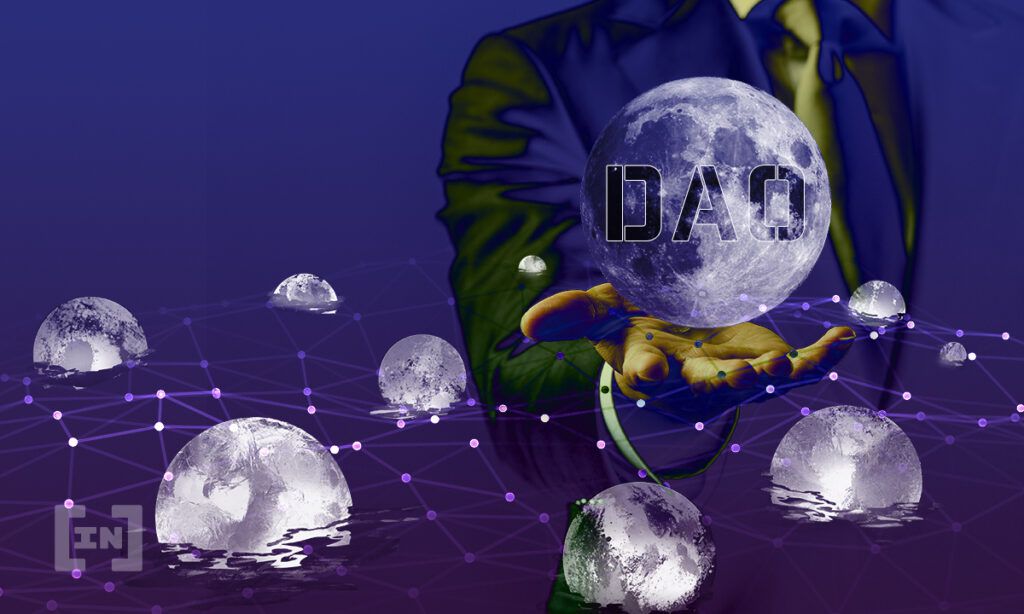Certain behaviors assumed by the SEC in the United States vis-à-vis Binance have sounded the alarm on a part of the ecosystem, hitherto covered with the veil of naivety.
The special situation utility tokens can trigger problems typical of the centralized world.
The aspirations to constitute Decentralized Autonomous Organizations (DAO), under the paradigm of the configuration of associative structures without human factor, mark the starting point of the organic and structural grouping of a set of actors who make up an organization, but move away from the regulations of companies and associations provided for by a legal order.
However, the possibility of energizing these DAOs presupposes the active role of members of the ecosystem who have self-interested objectives, which translate into assets of a heritage nature. Hardly anyone wants to form a DAO for faith, spiritual self-improvement, or the promotion of love. Be careful though: often the religious/rite element is a fundamental part of a big scam.
Financing a DAO cannot remain anonymous
The formation of a DAO presupposes in many cases, the issuance of useful tokens (units representing the value) which are acquired through a presale, this by the exchange with a cryptocurrency or acquired with a currency of legal tender.
The person keeps the token “or company stake” and the supposed DAO – in formation – is funded. This funding cannot remain anonymous, nor does the audibility of the blockchain exempt us from declaring what is visible on the network., this precisely because of the anonymity of the virtual wallets involved as well as the real value that the utility token possesses. This same value must coincide with that declared in the entity managing the public revenues of the country or jurisdiction in question.
A utility token must maintain a value relationship directly proportional to the amount of the declared balance ; this is what makes it possible to legally support any construction of tokenization of real estate assets that grants stability and transparency to the user / consumer.
Otherwise, many current constitutional safeguards and regulatory frameworks are violated with marked user/consumer use. Indeed, the latter will have difficulty finding clear rules to access the necessary information allowing him to assert his rights.
The Regulatory Pathology of Utility Tokens
thes companies under construction of a decentralized autonomous organization generally declare the value of tokens issued as “0” (if they declare them); holders don’t inform (because they don’t know them, but they should if it’s utility tokens). They also do not inform the acquisition amounts of the said tokens (although they are visible in the blockchain), sometimes this value is far from the value it should have.
In other words, a utility token must have exercise value; it cannot be subject to supply and demand because in this case, this necessarily implies regulation. Without the latter, the company must be fined and compensated for all damages caused to token holders. Likewise, if the tokens are declared at “0” we face a large tax evasion.
If the token is declared at a fixed annual value (exercise value), the right of redemption, acquisition, exchange and other social and financial tools must be adjusted to this amount. If this is not the case, the true function of a utility token is distorted, which must also tend towards a “nominative” distribution.
The current situation shows that many companies are avoiding regulation and hiding their true goals under the veil of the utility token.. They thus insert them into DEXs (especially minor DEXs) to raise funds through unregulated public offering programs, until the bomb goes off in their face.
Thereby, it is always advisable to have a clear business model without regulatory cracks before receiving a third party amount. Especially when it comes to advertising that invites the user/consumer to be part of the benefits translated into goods and services that emanate from the token in a decentralized ecosystem, when in reality the offerer is seeking funds and the acquirer of the token seeks financial speculation (winning with the highest possible value).
The new movements that the SEC gives allow us to warn that in the short term, special attention will be paid to any organization that uses the tokenization of assets (real estate or not) by issuing utility tokens, without having the authorization .

Once that happens, the director, founder, CEO, or whatever name you want to put… will have to answer for it, with the aggravating circumstance of having to do it personally. Precisely because it does not have the protection of an adequate type of society; and because perhaps the type of company hides, in the social object, other objects which make the founder jointly and severally responsible, subsidiary and unlimited on the economic level.
Be careful when undertaking asset tokenization business models
I offer two tips:
- Regulate the activity or ask for a prior opinion (situation which depends on each country where it has a head office).
- Maintain clear terms and conditions with the userknowing how to correctly define what type of token is offered.
Otherwise, the scam will be very close.
Disclaimer
All information on our website is published in good faith and for general information purposes only. Any action taken by the reader based on information found on our website is entirely at their own risk.
Founders of DAOs and Utility Tokens Border on Crypto Scam – BeinCrypto

